In 2025, home healthcare devices will be more popular than ever, making it easier for people to manage their health from home. With the rise in self-care and remote health management, knowing what’s new and useful is key. If you've ever felt overwhelmed by all the health devices promising to change your life, you're not alone. The good news? You don't need every gadget out there - you just need to know which ones truly matter for your health goals.

Why Should You Consider Home Healthcare Solutions in 2025?
Get Medical Care Without Leaving Your Home
Home healthcare refers to the range of medical and non-medical services provided to individuals in their homes. This type of care is significant because it allows people to receive treatment and support in a comfortable, familiar environment. It can include everything from nursing care and physical therapy to help with daily activities like bathing and cooking. The goal is to maintain or improve a person's health and quality of life without needing a hospital stay.
Home Healthcare Makes Life More Comfortable and Convenient
There are several benefits to opting for home healthcare. Firstly, it's incredibly convenient—caregivers come to you, eliminating the need for travel to clinics or hospitals. This setting also offers more comfort, as you remain in your own home surrounded by personal comforts. Additionally, home healthcare provides personalized attention tailored to your specific needs, which often leads to better outcomes. Patients typically enjoy higher satisfaction levels and can recover faster in a stress-free environment.
Home Health Devices Help Everyone Stay Independent
Many people can benefit from home healthcare devices. These tools are particularly useful for the elderly, who may struggle with mobility or chronic conditions that require regular monitoring. Individuals with chronic illnesses, such as diabetes or heart disease, find these devices helpful for managing their health on a daily basis. Post-surgery patients also gain significant advantages from using home healthcare devices, as they can aid in recovery by providing necessary support and reducing the need for frequent hospital visits. Overall, these devices empower users to take control of their health while maintaining independence.
Essential Types of Home Health Care Devices You Should Know
1. Monitoring Devices
Wearable fitness trackers are a type of monitoring device that helps individuals keep track of their health and fitness metrics. These smart devices, usually worn on your wrist like a watch, do much more than count steps. They can track your heart rate, monitor your sleep quality, measure your blood oxygen levels, and even detect when you're feeling stressed. Many come with user-friendly apps that help you understand your health patterns and set achievable fitness goals.
2. Therapeutic Devices
Therapeutic devices, such as red light therapy devices, use specific wavelengths of light to treat various health conditions. These devices use special light wavelengths to help reduce pain, speed up healing, and improve skin health. They're particularly helpful for joint pain, muscle soreness, and skin problems. The best part? They're safe, non-invasive, and can be used while you're relaxing at home or watching TV.
3. Mobility Aids
Mobility aids like walkers and canes are essential for individuals who need assistance with movement. These devices provide stability and support, helping people move around safely and independently. Walkers are ideal for those needing more support, while canes assist with balance and light support. Both devices enhance mobility for the elderly, those recovering from surgery, or anyone dealing with mobility challenges, ensuring they can navigate their environments with confidence.
4. Remote Medical Devices
Remote medical devices are tools that let doctors and healthcare professionals check on patients' health from afar, changing how we approach modern healthcare. These devices cover a wide range of technologies designed to collect real-time health data, like vital signs, glucose levels, and heart activity, without needing the patient to visit a clinic or hospital. A standout example is the continuous glucose monitoring (CGM) system, which is especially helpful for people with diabetes. CGMs track blood sugar levels throughout the day and night, sending this information wirelessly to smartphones or directly to healthcare providers.
5. Sleep Aids
Sleep aids such as white noise machines help improve sleep quality by creating a consistent auditory environment that masks disruptive noises. These machines produce soothing sounds, like rainfall or gentle waves, helping users fall asleep more easily and stay asleep longer. Ideal for individuals who live in noisy environments or have difficulty sleeping, white noise machines promote restful sleep, which is crucial for overall health and well-being.
What Should You Consider When Buying Home Healthcare Devices?
1. Safe and Certified Products Last Longer
When purchasing home healthcare devices, it's crucial to prioritize quality and safety. Look for devices that have FDA approval or other relevant certifications, as this ensures that the products meet essential safety and effectiveness standards. Choosing reputable brands is also important, as these companies typically provide reliable, high-quality products with proven track records. Reading reviews and seeking recommendations can help you identify trustworthy manufacturers.
2. Choose Features That Match Your Needs
Different home healthcare devices come with a variety of features that enhance their functionality. Consider must-have features that suit your needs, such as Bluetooth connectivity for syncing data with apps, ease of use for seamless operation, and portability if you need to use the device on the go. Devices with customizable settings and user-friendly interfaces often offer better usability and adaptability to personal health requirements.
3. Simple Designs Make Health Management Easier
User-friendliness is a key factor, especially for seniors or individuals who may not be tech-savvy. Devices should have intuitive designs that make them easy to set up and operate. Look for clear instructions, large displays, and simple controls. This ensures that users can effectively manage their health without frustration, maximizing the benefits they receive from the device.
4. Get Good Value and Support for Your Money
Cost is always an important consideration when buying healthcare devices. It's essential to understand the price range for the type of device you need and determine what is reasonable while balancing quality and functionality. Additionally, ensure the product comes with a solid warranty and good customer support. A warranty protects your investment, allowing you to address defects or issues without extra costs. Reliable customer support can assist with troubleshooting and ensuring you get the most out of your device.

Top Recommended Products for 2025
1. Best Monitoring Devices
Among the standout fitness trackers of 2025, the Fitbit Versa 4 offers impressive health-tracking capabilities. This advanced fitness tracker features GPS/GLONASS navigation, optical heart rate monitoring, and blood oxygen tracking. With its responsive touch-screen and convenient physical button, navigation is a breeze. The device packs 40+ exercise modes, automatic workout detection, and detailed sleep tracking. Water-resistant up to 50m and boasting a six-day battery life, it delivers extensive health metrics including VO2 Max and SpO2 tracking.
2. Most Effective Therapeutic Devices
Standing out as one of the most effective therapeutic devices, the BQ150 brings clinical-grade light therapy to your home. Using advanced dual-chip LEDs with four specialized wavelengths (630nm, 660nm, 850nm, 940nm), it delivers powerful 96.2 mW/cm² irradiance at 3 inches. This professional-grade device helps improve metabolism, speeds up wound healing, and relieves joint pain. It comes complete with essential safety features, including protective eyewear, and is backed by a 2-year warranty.
3. Top-Rated Mobility Aids
Named as this year's top-rated mobility aid, the Feather Wheelchair revolutionizes personal mobility with its ultra-lightweight design - just 19 pounds with wheels (13.5 pounds without). Perfect for both users and caregivers, it supports up to 250 pounds while offering smart features like easy-access wheel locks and a bike-style braking system. The practical folding design and quick-release wheels make storage and transport simple. Available in gray, red, or blue, it comes with a lifetime frame warranty, making it the ideal choice for anyone seeking a reliable, portable mobility solution.
4. Best Remote Medical Devices
As we look ahead to 2025, remote medical devices are becoming even more effective at helping people manage their health from home. Among these, the FreeStyle Libre 2 is a top choice for individuals with insulin-requiring diabetes. This continuous glucose monitoring (CGM) system works like a reliable personal assistant, keeping an eye on your blood sugar levels so you can focus on enjoying life without constant finger pricks. With the FreeStyle LibreLink app, you can see your glucose readings instantly on your smartphone, letting you make quick, informed decisions about your health. The app also provides detailed glucose profiles, trend reports, and personalized insights to help you understand how your everyday activities impact your blood sugar levels.
5. Top Sleep Aids
Breaking new ground in sleep-tracking innovation, the ŌURA Ring combines incredible accuracy with elegant design. This tiny powerhouse matches medical-grade ECG machines with 99.6% accuracy for resting heart rate and 98% for heart rate variability. Weighing just four grams and taking measurements from your finger's palm side, it's proven its worth with 86% of users reporting better sleep quality.
Choose Your Perfect Home Health Gadgets for Better Living in 2025
Taking care of your health at home has never been easier than in 2025, with so many helpful gadgets now available. From fitness watches and healing lights to wheelchairs and sleep trackers, there's a device for every health need. When choosing your health tools, focus on what's safe, easy to use, and matches what you need - all while staying within your budget. Whether you're recovering from surgery, managing a health condition, or just wanting to stay healthy, these modern devices make it simple to take care of yourself right from home.



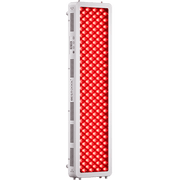
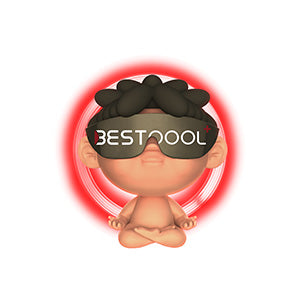








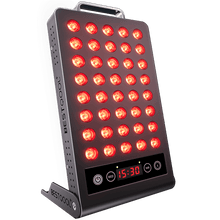
 Small
Small
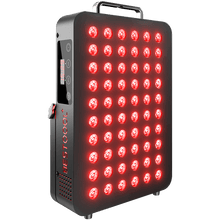
 Moderate
Moderate
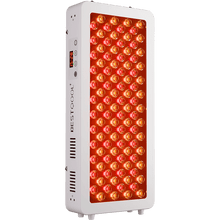
 Moderate
Moderate
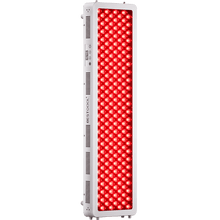
 Moderate
Moderate
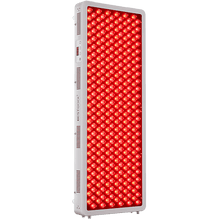
 Full
Full



